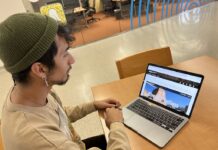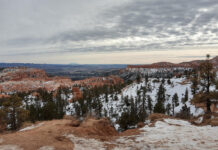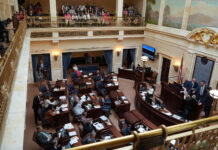
A new bill introduced in the Utah House of Representatives establishes procedures to put a nonbinding opinion question about daylight saving time on the 2020 ballot.
House Bill 66, sponsored by Republican Rep. Marsha Judkins, would pose a two-part question to Utah voters next year, asking whether to keep or eliminate daylight saving time.
“There has always been strong constituent interest in this issue, but it hasn’t been formalized, which is what this ballot question will do,” says Judkins.
Once passed, a House Resolution would determine the exact language of the question that will appear on the ballot.
The first part of the proposed question would ask voters to choose between four options:
- Establishing daylight saving time year-round.
- Abolishing daylight saving time altogether and adopting standard time year-round.
- Equal preference between the first two options.
- No changes, which would keep the status quo of changing clocks twice a year.
The second part of the question would ask voters whether they would support another option, should the state not choose their first choice. Voters could also choose to retain the status quo of observing daylight saving time.
There are various opinions about daylight saving time, established in the United States federally in 1966, on both sides of the issue, according to Judkins, who would prefer Utah revert to standard time all year.
“There are some really strong lobbies that we need to listen to,” she says.
Of particular concern, she says, are the health issues surrounding observing daylight saving time.
“I have been frustrated with changing my clocks forever,” explains Judkins, who is a mother of seven. The dark, early mornings in the spring, when daylight saving time begins, present a big safety concern, she says. Children are walking and biking to school early, along with many cars on the road commuting to work.
Multiple studies, including one at John Hopkins University in 1999, have shown a small but significant increase in car accidents on the Monday following the spring time change, when everyone loses an hour.
Other health issues associated with daylight saving time include disrupted sleep patterns and disruption of strict medication schedules at hospitals, especially with special needs patients.
“When you lose an hour, there’s definitely an impact on your cognitive performance and endurance,” says Jace Pincock, a nursing student who works as a psychiatric technician at the University of Utah Hospital.
Pincock says that daylight saving time also causes problems with the computer software the hospital uses to keep patient records.
“They haven’t figured a way to roll over the time so we don’t lose information,” he says. “During the spring and summer, we have to write out our charts manually.”
Judkins says voters will ultimately be more informed about the different sides of the issue by being asked to answer the opinion question on the ballot with contrasting answers.
“People do want to make good decisions,” she says. “With this we will have our minds opened.”
In general, a nonbinding ballot question is a question presented to voters about a certain issue. Lawmakers are not legally bound to the majority opinion of voters, but use the voting results as a guide from their constituents on future legislation.
In the 2018 election, Utah voters rejected a nonbinding opinion question that asked whether the state gasoline tax should be raised to provide funding for education and local roads.






